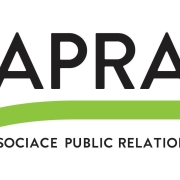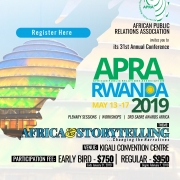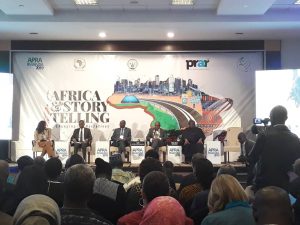How should a PR professional deal with disinformation? APRA introduced 7 principles
Prague, 18. 5. 2021 – The Association of Public Relations (APRA) perceives an intensive spread of disinformation in the Czech society as a serious problem but also as a great challenge for PR professionals. At the Forum Media Light conference, APRA presented seven principles of how a PR professional should deal with disinformation. The principles represent the first comprehensive set of recommendations on this topic. The aim of APRA is to open a professional discussion through these recommendations.
14.03.2022 – Last year, APRA started to support an initiative called Nelež, which helps to eliminate banner advertising on disinformation websites. “This kind of advertising gives disinformation sites credibility, directly supports their operation and at the same time, also means a reputational risk for the advertiser,” says the chief of APRA, Patrik Schober. “We are glad that the Nelež initiative continues to grow and that there are more than a hundred companies today which have committed themselves to not advertise on these platforms. Many of them are also members of APRA. ”
However, concerns for the relationship between disciplines like PR and fake news are not just about advertising on disinformation websites. Brands can easily become the target of fake news, subsequently impacting them negatively. “It is necessary to be prepared for situations like this, to be able to react quickly and to effectively disprove disinformation,” says Michal Vlasák, a member of the APRA Executive Board.
An additional concern is that by expanding the influence of disinformation, the trust in traditional media is declining. “Strong traditional media and the ongoing democratic debate on them represents a fundamental context for the field of public relations. That is why it is essential for our profession to support and cooperate with such media which strives for factual discussion and quality journalism, “adds Michal Vlasák. According to APRA, PR professionals, as experts in the media scene, can also use their expertise, understand the problem well and explain it to the public. In this way, they can contribute to increasing media literacy, which is at a low level in the Czech population.
How should a PR professional deal with misinformation?
7 principles according to APRA:
- Be clear about what disinformation is; be sure about how to discover it and where it most often comes from.
- Use your media expertise and educate your surroundings about what disinformation is and what risks it could bring.
- Do not advertise on disinformation websites. This is a reputational risk for your organization and a support for the spread of disinformation. Support serious media, you need them for your work.
- Do not inform operators of disinformation media. Operators and editors of disinformation media are not the same partner for a PR professional as regular journalists.
- Get ready. Disinformation can endanger an organization’s reputation and is a significant source of crisis communication. Define procedures for crisis communication that arises from disinformation.
- Ignoring misinformation may not be the solution. In the situation of a reputation threat, carefully consider how to disprove the disinformation so that it is not strengthened.
- Find independent sources of objective information, verify the facts with them and, if necessary, involve them in communication. Use fact-checking platforms.
Patrik Schober
APRA Chairman
APRA – Asociace public relations, z. s. | Na Poříčí 12, 110 00 Praha 1
Tel.: +420 224 875 320, +420 775 351 034 | Email: info@apra.cz | www.apra.cz




